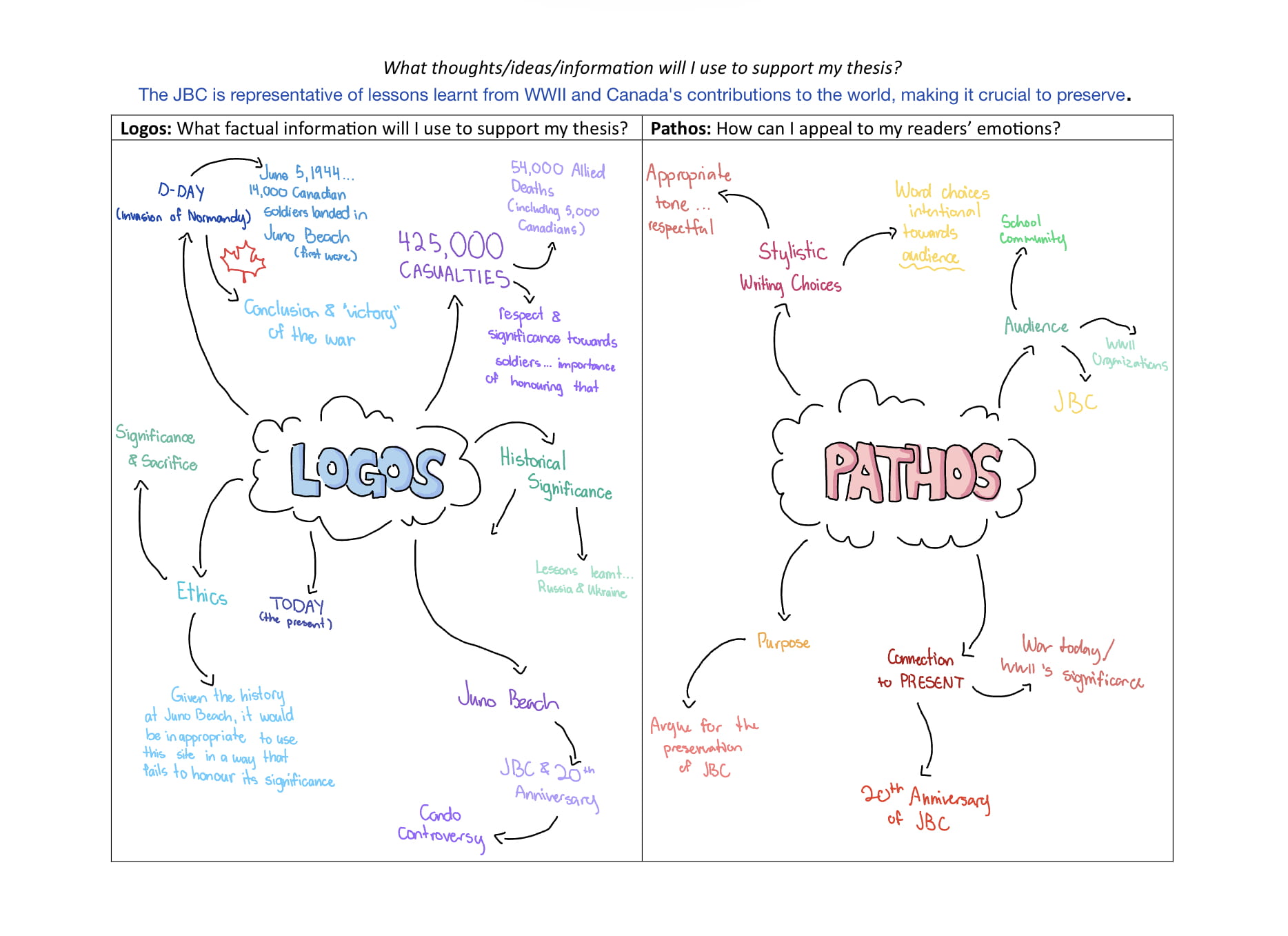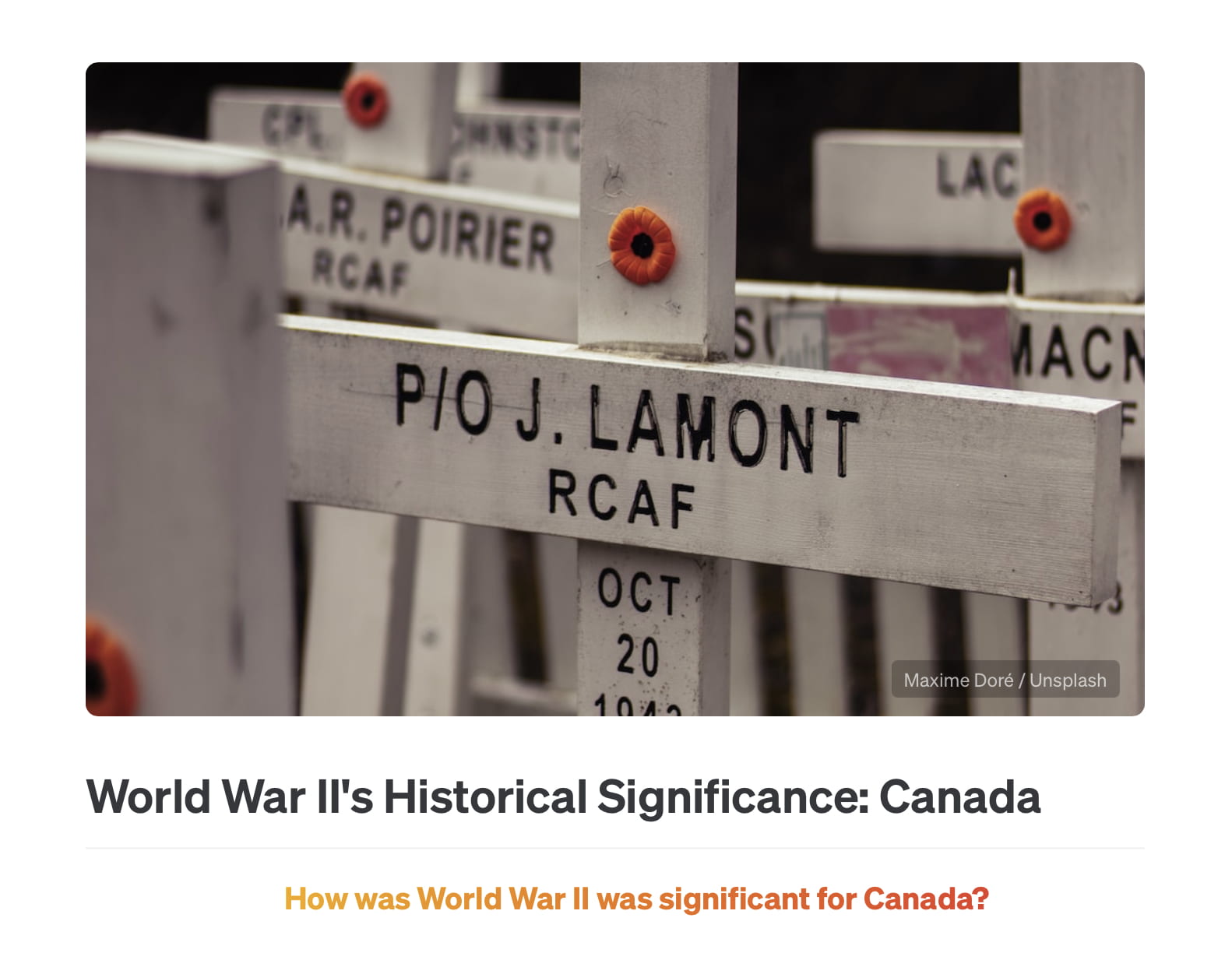Whenever I start a blog post, I feel an overwhelming amount of pressure for it to be unique, captivating, and thoughtful. Then I realize that these impossibly high standards I set for myself combined with burn out are preventing me from starting to write in the first place.
Is this self sabotage?
In other words, we finally completed our World War II project – a follow up to our World War I project from last year.
I started this project without ever hearing of Juno beach. Which is, in my opinion, a shame. As a Canadian student, all I ever really heard about in regards to war growing up are phrases like “lest we forget”, or war casualty statistics in hour-long Remembrance Day ceremonies. Poppies began to become associated with the month of November.
Yet, it seems one is only privy to such knowledge once they reach a certain school age? I don’t understand why we are only taught the specifics of Canadian history instead of a generalized version only once we are much older.
I have gone my entire life without knowing about Canada’s part in WWII. That is actually insane to me.
Anywho.
Why is it so important to preserve the Juno Beach Centre?

We begun this project through watching the Juno Beach scene from Saving Private Ryan, a popular WWII film. I found that it was very graphically disturbing and uncomfortable; fitting for its reputation of being a greatly accurate representation of the realities of war.
Then, the fun part: we received more lectures than I probably ever have received in PLP. Which, wasn’t a bad thing. I loved learning about solid facts and statistics regarding war, and having the information handed to me, instead of having to rummage the internet for it. That’s always much appreciated.
Ah yes, the PEE formula.
An unfortunate acronym. (In my opinion, it’s up there with Hermione’s SPEW from Harry Potter.)
- Point
- Evidence
- Explanation
After we learned much about WWII – including the Battle of the Atlantic – we used the PEE formula to summarize and argue for the importance of the battle. Read more about my process here.
Then, we argued for the historical significance of WWII in regards to Canada. I chose three points to write about for this keystone, though admittedly, my final point – Divisiveness in Cultural Identity – was my weakest.



We also began to study rhetoric – the art of persuasive writing.
We first analyzed a text titled “It’s not just the weather that’s cooler in Canada” by Samantha Bennett. In class, we then had a discussion in which we analyzed various themes and techniques the author used.
I struggled a lot in this discussion because I felt that I had a lot I wanted to say, but had difficulty pitching into the discussion. Whenever I wanted to say something, someone else would say it sooner, or the discussion would move on before I got the chance. This resulted in me feeling very withdrawn by the end of the discussion. I always find expressing my thoughts out loud instead of on a page very difficult, and I found that although I felt very engaged in the conversation, I didn’t have much speaking space since I didn’t know when to interrupt to voice my own thoughts.
Then, we read a text titled “Thanks for Not Killing My Son” by Rita Schindler.
Read my analysis here.
I didn’t connect or comprehend this piece as much as I had with the last one we analyzed. The amount of double meanings and the contrast of the tone and word choice made it very confusing for me personally. Although I included a lot of interesting points in my analysis, I can’t help but feel that I missed the entire point of this text, which is frustrating to say the least.
After we developed a strong understanding of both World War II and rhetoric, we had to combine our knowledge in creating a persuasive piece arguing for the preservation of Juno Beach.



My Brainstorm
Based off of peer feedback, I revised my rhetorical piece multiple times until I was satisfied.
Draft #1
Draft #2
My Final Draft:
Why is it so important to preserve the Juno Beach Centre?
Through the learning I completed throughout this project – both in class and independently – I discovered that there is value in Remembrance, beyond just poppies and hour-long ceremonies. Erasing important parts of history that define much of our world today is not only ignorant, but also choosing to not learn the value of past mistakes, as well as to do better.
Personally, a lot of the time throughout this project, I found it difficult to argue for these important themes in Canadian history – and I believe a lot of that has to do with my own conflicting identity of what it means to be Canadian.
At the end of the day, I believe that Juno Beach Centre should be preserved not as a way to celebrate war, but to memorialize and remind ourselves the damage that war brings.
I hope that the world continues to take these lessons to heart.










Leave a Reply